Find Help
More Items From Ergsy search
-
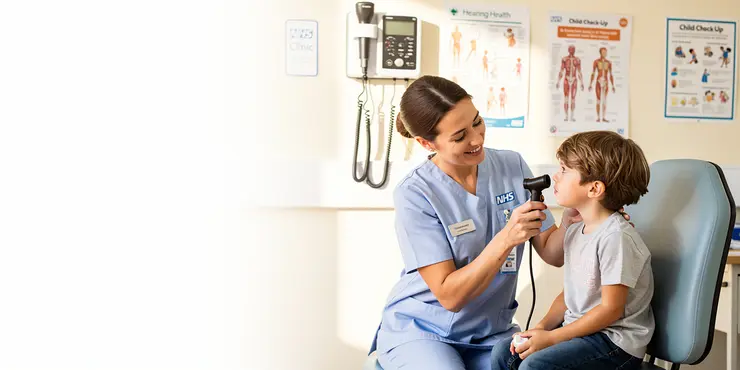
Self care: Treating ear infections
Relevance: 100%
-
Can ear infections lead to tinnitus?
Relevance: 64%
-
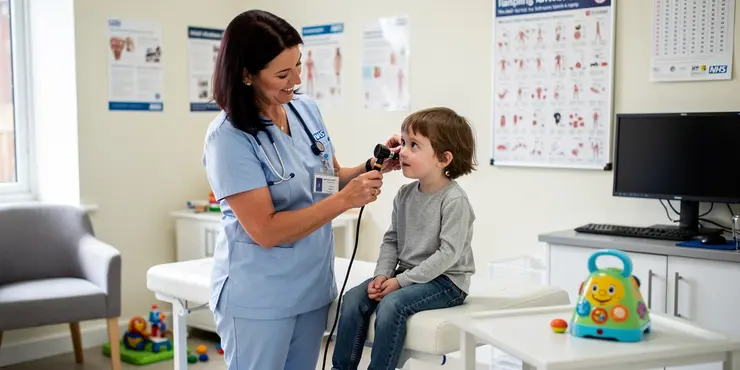
Glue Ear Pathway
Relevance: 51%
-

Evidence-Based Interventions: grommets for glue ear in children
Relevance: 47%
-

Self care - sunburn
Relevance: 44%
-
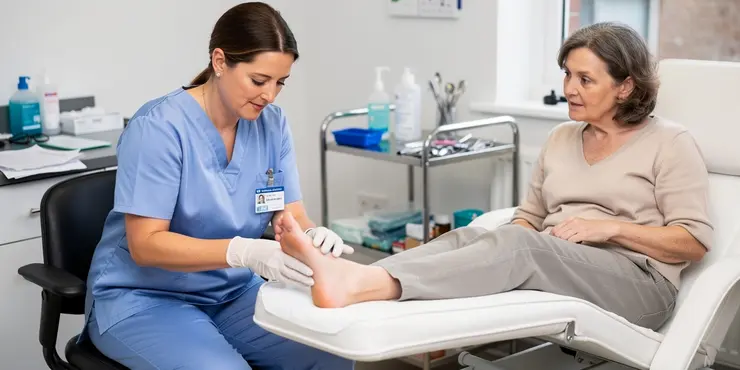
Self care for your feet - Podiatrist
Relevance: 43%
-

Is ringing in the ears and tinnitus the same thing?
Relevance: 41%
-

Self care - sunburn
Relevance: 40%
-
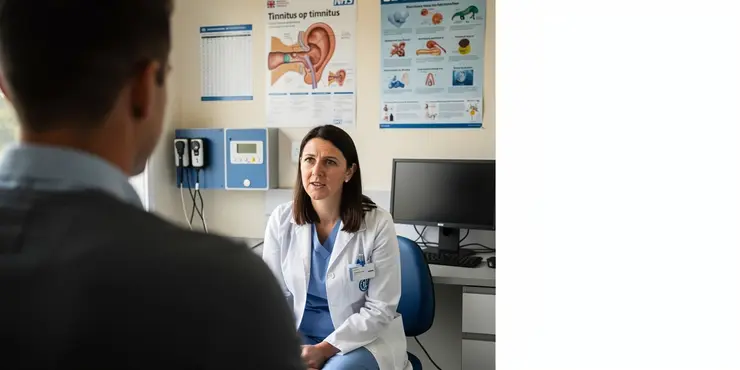
Is ringing ion the ears and tinnitus the same thing?
Relevance: 39%
-

What is a Self Assessment tax return?
Relevance: 37%
-

How do I register for Self Assessment?
Relevance: 37%
-
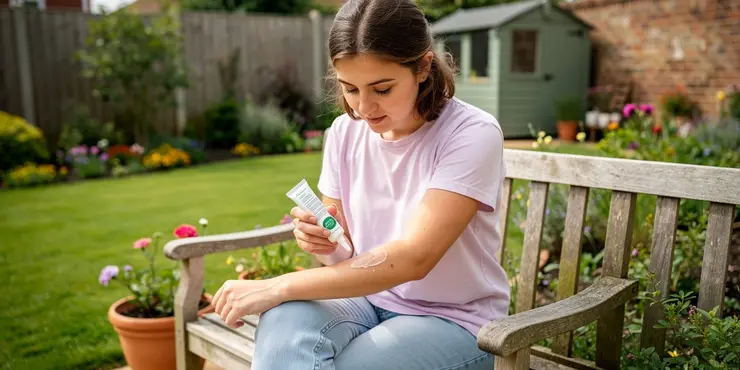
Self care - insect bites
Relevance: 36%
-

My first Self Assessment tax return
Relevance: 35%
-

Who needs to file a Self Assessment tax return?
Relevance: 35%
-

Can I get help from HMRC with my Self Assessment?
Relevance: 34%
-

How do I complete my Self Assessment tax return?
Relevance: 33%
-
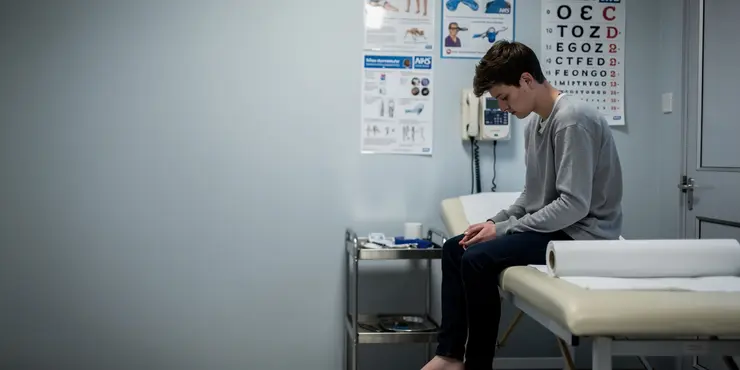
Self Harm
Relevance: 33%
-

When is the deadline for submitting my Self Assessment tax return?
Relevance: 33%
-

Do I need an accountant to file a Self Assessment tax return?
Relevance: 33%
-

Can children benefit from chiropractic care?
Relevance: 32%
-

What records should I keep for my Self Assessment?
Relevance: 32%
-

What happens if I miss the Self Assessment deadline?
Relevance: 31%
-

Who is eligible for a Time to Pay arrangement for Self Assessment?
Relevance: 31%
-

Suicide and Self Harm Prevention Strategy 2023-28
Relevance: 31%
-

What if I owe more than £30,000 in Self Assessment tax?
Relevance: 31%
-
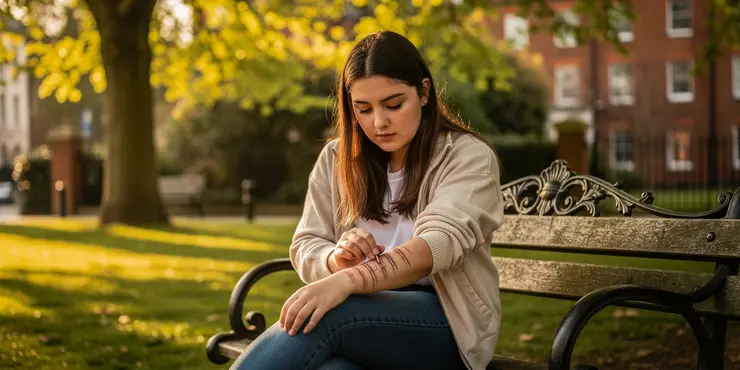
Self Harm
Relevance: 30%
-

How to set up a Time to Pay arrangement online for Self Assessment
Relevance: 30%
-

Can a stoma bag cause infections?
Relevance: 29%
-
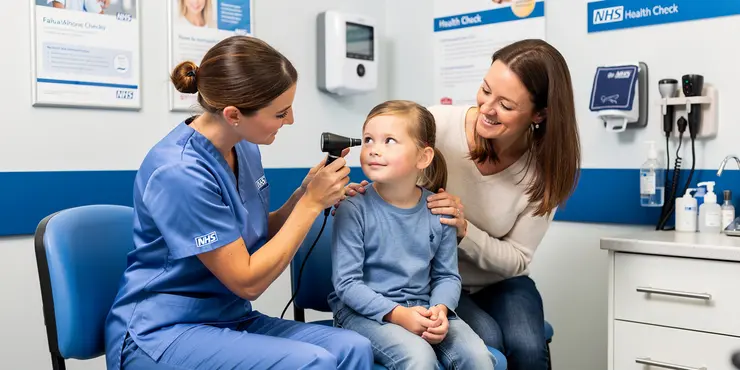
How to treat earache | NHS
Relevance: 28%
-

What is a Time to Pay arrangement for Self Assessment?
Relevance: 28%
-

Let's Talk Sexual Health - Home Self Testing Kits
Relevance: 28%
-

Dorothy's Story (Falls/Chest Infection)
Relevance: 28%
-
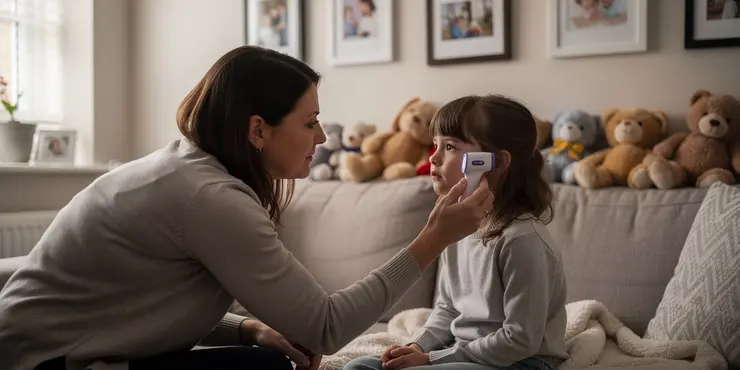
Caring for a child with fever | NHS
Relevance: 28%
-

Can E. coli infections be treated?
Relevance: 27%
-

Are E. coli infections contagious?
Relevance: 27%
-

What information do I need to complete my Self Assessment tax return?
Relevance: 27%
-

Mycobacterium chimaera infection
Relevance: 26%
-
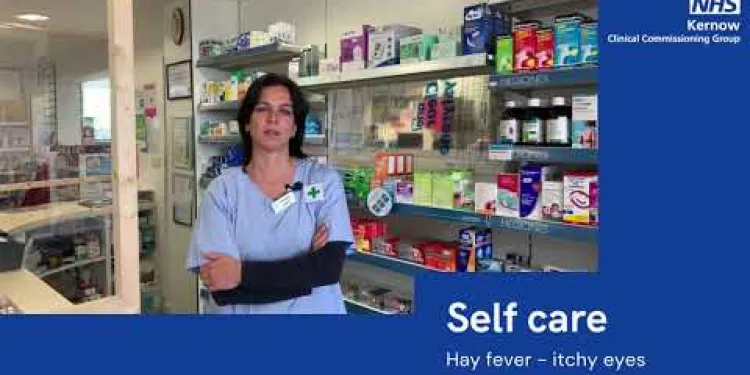
Self care - hay fever itchy eyes
Relevance: 26%
-
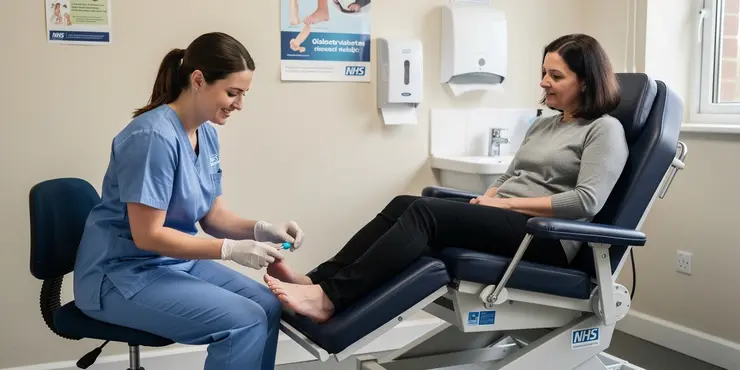
Podiatrist Fungal feet - fungal infection of skin and nails and how to prevent fungal infection in feet
Relevance: 26%
-

Are there symptoms of an HPV infection?
Relevance: 25%
Self Care: Treating Ear Infections
Understanding Ear Infections
Ear infections, common in both adults and children, can cause discomfort, pain, and even hearing issues if left untreated. They usually occur when bacteria or viruses infect the middle ear. Symptoms often include ear pain, reduced hearing, discharge, and sometimes fever. Prompt and effective self-care is crucial to alleviate symptoms and prevent complications.Identifying Symptoms
Recognising the early signs of an ear infection allows for more effective self-care. Common symptoms include:- Earache or a sharp pain in one or both ears
- A feeling of fullness in the ear
- Diminished hearing
- Fluid drainage from the ear
- Fever and general unwell feeling
- In young children: irritability, pulling at ears, and difficulty sleeping
Home Remedies and Relief Measures
Initial self-care steps can help manage mild ear infection symptoms:- Warm Compress: Apply a warm cloth or heat pad to the affected ear to reduce pain.
- Pain Relief: Over-the-counter painkillers like paracetamol or ibuprofen can alleviate discomfort and reduce fever.
- Hydration: Drink plenty of fluids to keep the body hydrated, which can help in recovery.
- Rest: Ensure adequate rest to aid the immune system in fighting the infection.
When to Seek Professional Help
While many ear infections clear up on their own within a few days, certain situations require medical consultation:- Severe pain or symptoms persisting beyond two to three days
- Discharge of pus or blood from the ear
- Hearing loss or difficulty hearing clearly
- Recurring ear infections
- Symptoms in young children or infants
Preventing Ear Infections
Preventative measures can reduce the risk of developing ear infections:- Practice Good Hygiene: Regular handwashing to prevent the spread of viruses and bacteria.
- Avoid Smoke: Minimise exposure to cigarette smoke, as it can increase the risk of infections.
- Vaccinations: Ensure vaccinations, such as the flu vaccine, are up to date.
- Manage Allergies: Treat seasonal allergies promptly to avoid related ear issues.
Self Care: Treating Ear Infections
Recognising the Symptoms
Ear infections are a common ailment that can cause discomfort, particularly in children. Symptoms may include ear pain, difficulty hearing, a feeling of fullness in the ear, and sometimes fever or fluid drainage. Recognising these signs early can aid in swift treatment and prevent complications.Home Remedies
For mild ear infections, there are several home remedies you can try to alleviate discomfort. Applying a warm compress to the affected ear can help reduce pain. Over-the-counter pain relievers such as paracetamol or ibuprofen are also effective. Ensure you follow the dosage instructions provided.Keeping the Ear Clean and Dry
Keeping the ear clean and dry is crucial in preventing infection from worsening. Avoid inserting objects into the ear canal, including cotton swabs, which can aggravate the condition. When showering or swimming, use earplugs or a shower cap to keep water out of the ear.When to Seek Medical Attention
If symptoms persist for more than a few days or worsen, it is essential to seek medical attention. Persistent fever, severe pain, or discharge from the ear are signs that professional medical intervention may be required. In such cases, a healthcare provider might prescribe antibiotics or other treatments.Preventive Measures
To reduce the risk of ear infections, practice good hygiene, such as washing hands regularly and keeping ears dry. Avoid exposure to secondhand smoke, and ensure vaccinations are up-to-date, particularly for children. Additionally, treating upper respiratory infections promptly can also help prevent ear infections.Consulting a Pharmacist
In the United Kingdom, pharmacists can provide valuable advice and recommend appropriate over-the-counter treatments for ear infections. If you are unsure about the best course of action, do not hesitate to consult your local pharmacist for guidance.Conclusion
Self-care plays a vital role in managing ear infections effectively. By recognising symptoms early, employing home remedies, maintaining ear hygiene, and knowing when to seek professional help, you can successfully treat ear infections and reduce discomfort. Always consider preventive measures to decrease the likelihood of future infections.Self Care: Treating Ear Infections
Understanding Ear Infections
Ear infections are common in both adults and children. They can cause pain and make it hard to hear. They happen when germs get into the middle part of your ear. Signs of an ear infection include ear pain, not hearing well, fluid coming out of the ear, and sometimes a fever. Taking care of it quickly can help you feel better and stop more problems.Identifying Symptoms
Knowing what an ear infection feels like helps you take care of it sooner. Look for these signs:- Pain or a sharp ache in one or both ears
- Feeling like your ear is full
- Not hearing as well as usual
- Fluid or liquid coming out of the ear
- Having a fever or feeling unwell
- In young children: Being cranky, pulling at their ears, or having trouble sleeping
Home Remedies and Relief Measures
You can try these steps at home to feel better:- Warm Compress: Put a warm cloth on the sore ear to help with the pain.
- Pain Relief: Medicines like paracetamol or ibuprofen can help with pain and fever.
- Hydration: Drink lots of water to help your body heal.
- Rest: Sleep and rest to help your body fight the infection.
When to Seek Professional Help
Sometimes, you need to see a doctor:- If the pain is very bad or if it does not get better after two to three days
- If you see pus (thick or colored fluid) or blood coming from the ear
- If you cannot hear clearly
- If ear infections keep coming back
- If young children or babies show symptoms
Preventing Ear Infections
You can do things to help stop ear infections from happening:- Practice Good Hygiene: Wash your hands often to keep germs away.
- Avoid Smoke: Stay away from cigarette smoke, as it can make infections more likely.
- Vaccinations: Make sure your shots, like the flu shot, are up to date.
- Manage Allergies: Take care of allergies quickly to avoid problems with your ears.
Self Care: Treating Ear Infections
Recognising the Symptoms
An ear infection can make you feel bad. This happens a lot in kids. Signs to look for are: - Ear pain - Trouble hearing - A stuffy feeling in the ear - Sometimes a fever or liquid coming out. Knowing these signs quickly can help you get better faster.Home Remedies
If your ear infection is not too bad, there are things you can do at home: - Put a warm cloth on your ear to help with pain. - You can take medicine like paracetamol or ibuprofen to feel better. Make sure to use the right amount.Keeping the Ear Clean and Dry
Keep your ear clean and dry so it doesn't get worse: - Don't put things like cotton swabs inside your ear. - Keep water out of your ear when you shower or swim by using earplugs or a cap.When to Seek Medical Attention
If you still feel bad after a few days, or if it hurts a lot, go to the doctor: - If you have a fever, a lot of pain, or liquid is coming out of your ear, you need a doctor’s help.Preventive Measures
Here are ways to stop ear infections before they start: - Wash your hands often. - Keep ears dry. - Stay away from cigarette smoke. - Make sure your vaccinations are up-to-date, especially for kids. - Treat colds quickly so they don’t cause ear infections.Consulting a Pharmacist
In the UK, a pharmacist can help you with ear infections. They can tell you what medicine to buy. If you don’t know what to do, ask your pharmacist.Conclusion
Taking care of yourself is important to deal with ear infections: - Know the signs early. - Try home remedies. - Keep your ears clean. - Know when to see a doctor. - Try to stop infections from happening again. These steps can help you feel better and keep ear infections away.Frequently Asked Questions
What are the symptoms of an ear infection?
Common symptoms of an ear infection include ear pain, difficulty hearing, fluid drainage from the ear, and sometimes fever.
Can ear infections heal on their own?
Yes, many ear infections, especially mild ones, can resolve on their own without medical treatment. However, it is essential to seek medical advice if symptoms persist or worsen.
How can I treat ear pain at home?
Over-the-counter pain relievers like paracetamol or ibuprofen can help relieve ear pain. Applying a warm compress to the affected ear can also provide some comfort.
When should I see a doctor for an ear infection?
You should see a doctor if you or your child experience severe pain, high fever, hearing loss, or if symptoms last more than 48 hours. Infants and toddlers should be seen by a doctor if any symptoms of ear infection are present.
Are there any home remedies for ear infections?
While home remedies such as warm compresses and staying hydrated can provide symptom relief, it is crucial to consult a healthcare professional before trying any home treatment.
Can ear infections cause hearing loss?
Temporary hearing loss can occur during an ear infection due to fluid buildup. Permanent hearing loss is rare but possible if infections are recurrent and untreated.
Are antibiotics necessary for all ear infections?
Not all ear infections require antibiotics. Many mild ear infections can resolve on their own. A doctor will determine if antibiotics are necessary based on the specific case.
How can I prevent ear infections?
Preventative measures include keeping ears dry, avoiding smoking and second-hand smoke, staying up to date with vaccinations, and practising good hand hygiene to reduce infections.
Can I fly with an ear infection?
Flying with an ear infection can be uncomfortable and may worsen symptoms. It's best to consult with a doctor before flying if you have an ear infection.
Is it safe to swim with an ear infection?
Swimming should be avoided with an ear infection as moisture can exacerbate the condition. Consult with a healthcare provider for proper advice.
Can adults get ear infections?
Yes, adults can get ear infections, although they are more common in children. Adults should seek medical attention if they experience symptoms of an ear infection.
What types of ear infections are there?
There are three main types of ear infections: otitis externa (outer ear infection), otitis media (middle ear infection), and otitis interna (inner ear infection).
How can I tell if my child has an ear infection?
Children with ear infections may exhibit symptoms such as ear pain, tugging at the ear, irritability, trouble sleeping, and sometimes fluid drainage from the ear.
Can ear infections spread to other parts of the body?
In rare cases, untreated ear infections can spread to nearby tissues and cause more serious conditions. It is essential to seek medical treatment if an ear infection is suspected.
What should I avoid doing if I have an ear infection?
Avoid inserting objects into the ear, exposing the ear to water, and smoking. Follow your healthcare provider's recommendations for care and treatment.
What are the common symptoms of an ear infection?
Common symptoms include ear pain, difficulty hearing, fluid drainage from the ear, fever, and a feeling of fullness in the ear.
How can I treat an ear infection at home?
Home treatments can include applying a warm compress, taking over-the-counter pain relievers like paracetamol or ibuprofen, and using over-the-counter eardrops.
When should I see a doctor for an ear infection?
You should see a doctor if you experience severe pain, a high fever, hearing loss, or if symptoms persist for more than a couple of days despite home treatments.
Can over-the-counter medications help with ear infections?
Yes, over-the-counter pain relievers such as paracetamol or ibuprofen can help manage pain and reduce fever, and over-the-counter eardrops may help alleviate symptoms.
Are ear infections contagious?
Ear infections themselves are not contagious, but the colds or respiratory infections that lead to ear infections can be.
Can an ear infection cause hearing loss?
While temporary hearing loss can occur during an ear infection due to fluid buildup, most people regain their hearing once the infection clears. Persistent hearing loss should be checked by a healthcare professional.
What causes ear infections?
Ear infections are most commonly caused by bacteria or viruses, often following a respiratory infection such as a cold or flu.
Are there any natural remedies for ear infections?
Some people use natural remedies like garlic oil drops or tea tree oil, although it’s important to consult a healthcare professional before trying natural treatments.
Can ear infections be prevented?
Good hygiene practices, like washing hands frequently and avoiding exposure to sick individuals, can help prevent respiratory infections that may lead to ear infections. Keeping ears dry and avoiding inserting objects into the ear can also help.
Is it safe to swim with an ear infection?
It’s generally advisable to avoid swimming until an ear infection has fully healed to prevent irritation and further infection.
How can I tell if my child has an ear infection?
Signs in children may include tugging at the ear, crying more than usual, trouble sleeping, balance problems, and fluid draining from the ear.
What should I avoid if I have an ear infection?
Avoid inserting objects into the ear, including cotton swabs, and refrain from getting water in the ear until the infection has cleared.
Can stress cause ear infections?
While stress itself doesn’t cause ear infections, prolonged stress can weaken the immune system, making one more susceptible to infections.
How long does it typically take for an ear infection to heal?
Most ear infections resolve within a few days to a week, although it's important to complete any prescribed medication and follow up with a healthcare professional if symptoms persist.
Are antibiotics always necessary for ear infections?
Not all ear infections require antibiotics. Many viral infections resolve on their own, while bacterial infections may sometimes need antibiotics. A healthcare professional can determine the best course of treatment.
What happens when your ear is sick?
When your ear is sick, you might feel:
- Pain in your ear
- Your ear might feel full
- Trouble hearing
- Fluid coming out of your ear
- Fever
It is important to tell a grown-up or a doctor if you have these feelings.
If reading is hard, try asking someone to read it out loud or use a reading app to help you.
Ear infections can cause these problems:
- Your ear might hurt.
- It can be hard to hear.
- Liquid might come out of your ear.
- You might have a fever.
Can ear infections get better without help?
Yes, sometimes ear infections get better by themselves. This happens mostly with mild ear infections. But if your ear hurts for a long time or gets worse, you should see a doctor.
How can I help my ear feel better at home?
If your ear hurts, here are some things you can try at home to feel better: 1. **Warm Cloth**: Hold a warm cloth against your ear. This might help the pain go away. 2. **Rest**: Try to rest in a quiet place. 3. **Pain Medicine**: Ask an adult if you can take medicine to help with the pain. 4. **Ear Drops**: Sometimes, special drops for ears can help. Ask a grown-up if this is okay. 5. **Drink Fluids**: Drink water or juice to stay hydrated. 6. **Avoid Loud Noises**: Stay away from loud sounds to give your ear a break. If your ear still hurts a lot or gets worse, ask an adult to take you to a doctor.Pain medicines you can buy, like paracetamol or ibuprofen, can help if your ear hurts. You can also use something warm on your ear, like a warm cloth, to feel better.
When should I go to the doctor for an ear infection?
If your ear hurts, things sound different, or you feel dizzy, it might be an ear infection.
Here are some times you should go to the doctor:
- Your ear still hurts after two days.
- You have liquid coming out of your ear.
- You have a high fever.
- You feel really dizzy or off-balance.
If you are not sure, it's okay to ask a grown-up for help.
You can also use headphones or other devices to make sounds clearer and softer.
See a doctor if you or your child have:
- Bad pain
- A high fever
- Trouble hearing
- If you feel sick for more than 2 days
If babies or little kids have signs of an ear infection, take them to the doctor.
Tools or tips that can help:
- Use picture books to help explain things.
- Watch videos that show what to do.
- Use apps on a tablet for learning.
Can I help an ear infection at home?
Home remedies like using a warm cloth or drinking lots of water can help you feel better. But, it's important to talk to a doctor before using any home treatment.
Can ear infections make it hard to hear?
Sometimes, when your ear gets sick, it can be hard to hear things. This is called an ear infection. When your ear hurts or feels itchy, it is important to tell a grown-up or see a doctor. They can help you get better and check your ears.
If you find reading tricky, you can ask someone to read with you. You can also try listening to the text on a phone or tablet. These can help you understand the words better.
Sometimes, when you have an ear infection, you might not hear well. This happens because of fluid in your ear. Usually, this goes away. It's very rare, but if you have lots of ear infections that you do not treat, you might lose hearing forever.
If you're having trouble understanding, try these tips:
- Use picture cards to help explain.
- Ask someone to say it in a different way.
- Listen to someone read it out loud.
Do you need medicine for every ear infection?
An ear infection can make your ear hurt and feel bad. Sometimes, doctors give you medicine called antibiotics to help you get better. But not everyone with an ear infection needs this medicine. It depends on how bad the infection is and how old you are.
It's best to ask a doctor for advice about ear infections. Sometimes, your body can heal on its own without antibiotics.
Here are some things that can help:
- Rest lots and drink water.
- Put a warm cloth on your ear to feel better.
- Ask a doctor or nurse for help if needed.
Remember, always talk to a doctor for the best advice for you.
Not all ear infections need medicine. Some small ear infections can get better without it. A doctor will decide if you need medicine for your ear infection.
How can I stop ear infections?
Here are some ways to help keep your ears healthy:
- Keep your ears clean. Use a damp cloth to wipe the outside of your ears.
- Do not put things inside your ears, like cotton swabs.
- Stay away from loud noises. If you can, wear earplugs or headphones to protect your ears.
- Try not to smoke, and avoid places where people smoke.
- Wash your hands often to stay germ-free.
- Dry your ears well after swimming.
It might help to talk to a doctor if you have ear pain or problems hearing.
Here are ways to keep your ears healthy:
- Keep your ears dry. Water can sometimes cause problems.
- Don't smoke and stay away from people who are smoking.
- Get all your vaccinations. These help stop you from getting sick.
- Wash your hands often. This helps stop germs and keeps you healthy.
Can I fly if my ear hurts?
If your ear hurts or you have an ear infection, flying on a plane might not feel good. When the plane goes up and down, the air pressure changes. This can make your ears hurt more.
Here are some tips to help:
- Talk to your doctor before you fly. They can give advice.
- Chew gum or suck on candy during takeoff and landing. This helps your ears pop.
- Use special earplugs made for flying. They can help with pressure changes.
- Take medicine like decongestants before the flight if your doctor says it's okay.
Remember, always ask your doctor what is best for you.
Flying with an ear infection can hurt. It might make the infection feel worse. It's a good idea to talk to a doctor before you fly if your ear is infected.
Can you swim if your ear is infected?
If your ear is hurting or infected, it is best not to swim.
Water can make the infection worse.
Ask a doctor if it is okay for you to swim.
If you want, you can use earplugs to keep water out of your ears.
Do not go swimming if you have an ear infection. Water can make it worse. Talk to a doctor to get the right help.
Can grown-ups get sick ears?
Yes, grown-ups can get sick ears. This is called an ear infection. If your ear hurts, feels funny, or you can't hear well, tell a doctor.
Here are some things you can do:
- Wear a hat when it's cold and windy to keep your ears warm.
- Don't push things into your ears.
- Use cotton wool in your ears when you swim to keep water out.
You can talk to a doctor if your ears hurt. They can help you feel better.
Yes, grown-ups can get ear infections too. Kids get them more often, but grown-ups can get them as well. If you think you have an ear infection, it is a good idea to see a doctor.
What kinds of ear infections are there?
There are different kinds of ear infections. Here are three main types:
- Outer ear infection: This is when the outer part of the ear gets infected. It can hurt and feel itchy. It's also called "swimmer's ear."
- Middle ear infection: This happens behind the eardrum. It can make it hard to hear. It might also make your ear feel full or achy.
- Inner ear infection: This is less common but can make you feel dizzy or off-balance.
Tools like picture books or videos can help explain more about ear infections. You can ask a parent or teacher to talk with you about them too.
There are three kinds of ear infections:
- Otitis externa: This is when the outer part of your ear gets infected.
- Otitis media: This is when the middle part of your ear gets infected.
- Otitis interna: This is when the inner part of your ear gets infected.
To understand better, you can use pictures of the ear to see where these parts are. It's also helpful to talk with someone who can explain these infections in simple words.
How do I know if my child has an ear infection?
Here are some signs that might mean your child has an ear infection:
- Your child pulls or rubs their ear.
- Your child says their ear hurts.
- Your child is fussy or cries more than usual.
- Your child has a fever.
- Your child has trouble hearing.
- Your child has trouble sleeping.
If you think your child has an ear infection, you can:
- Take them to see a doctor for help.
- Use special tools like picture books to explain what's happening.
- Give them hugs and keep them comfy.
When kids have ear infections, they might show these signs: their ear hurts, they pull on their ear, they are grumpy, they can't sleep well, and sometimes stuff comes out of their ear.
To help understand these signs, you can:
- Use pictures to show what each sign looks like.
- Break down each sign into simple steps.
- Ask an adult or a doctor if you have questions.
Can ear infections move to other parts of the body?
An ear infection can make you feel unwell. Sometimes, it can affect other parts of your body. It is important to see a doctor if you think you have an ear infection.
Helpful tips:
- Ask someone you trust to help explain things.
- Use pictures or drawings to understand better.
- Ask your doctor questions if you are not sure about something.
Sometimes, ear infections can get worse and spread to other parts of your head. This can happen if they are not treated. It is very important to see a doctor if you think you have an ear infection.
What should I not do if my ear is sick?
Don’t put things in your ear. Keep your ear dry. Don’t smoke. Listen to your doctor's advice for taking care of your ears.
What are the signs that your ear might be sick?
Here are some signs your ear might be sick:
- Your ear hurts.
- It's hard to hear.
- Your ear feels full or stuffy.
- You might have a fever.
- You could feel dizzy or off-balance.
- Liquid might come out of your ear.
If you feel these things, it's a good idea to talk to an adult. They can help you see a doctor or a nurse.
You can also draw a picture of how you feel or write in a diary. This can help you understand what's happening.
Here are some common signs to look for:
- Your ear might hurt.
- It can be hard to hear.
- Something wet might come out of your ear.
- You might have a fever, which means your body feels hot.
- Your ear might feel full or like it’s blocked.
It can help to talk to a doctor or use a warm cloth on your ear. You can also ask someone to read this with you if you need more help.
What can I do at home to help an ear infection?
You can try a few things at home to feel better.
You can use a warm cloth on your ear. This might help with the pain.
You can also take medicine like paracetamol or ibuprofen to help with the pain.
You can use ear drops that you can buy at the store.
When should I go to the doctor for an ear infection?
If your ear hurts, you might have an ear infection. Here is when you should go to the doctor:
- If your ear hurts a lot.
- If you have trouble hearing.
- If you have a fever.
- If liquid comes out of your ear.
- If your ear infection does not go away after a few days.
It can be hard to know what to do, so you can ask an adult to help you. You can also use a thermometer to check if you have a fever. Remember, it is always okay to ask for help!
Go to the doctor if you have a lot of pain, a high fever, trouble hearing, or if you still feel bad after trying to get better at home for a few days.
Can you buy medicine from a shop to help with ear infections?
If your ear hurts because of an infection, you might wonder if you can buy medicine from a shop to feel better. Some medicines you can buy without a doctor's note might help. These medicines can help with pain or fever.
If your ear infection doesn't get better, it's good to talk to a doctor. A doctor can give you special medicine.
If reading is hard, try these ideas:
- Ask someone to read with you.
- Use an app that reads the text out loud.
- Look for pictures or videos about ear infections.
You can buy some medicines from the shop to help with pain and fever. These are called paracetamol and ibuprofen. You can also get special eardrops from the shop to help if your ears hurt.
Can you catch an ear infection from someone else?
Ear infections don't spread to other people. But colds that cause ear infections can spread.
Can an ear infection make it hard to hear?
Sometimes, when your ear is sick, it can be hard to hear well.
If your ear feels funny or hurts, see a doctor.
A doctor can help fix the problem and make your ear feel better.
Tools like pictures or apps can help you understand more about your ears and hearing.
Sometimes, when you have an ear infection, you might not hear well. This is because there is fluid in your ear. Most of the time, your hearing will get better once the infection is gone. If you still can't hear well after that, you should see a doctor.
What makes ear infections happen?
Ear infections can be caused by:
- Germs getting into the ear
- A cold or a sore throat
- Water or something else stuck in the ear
If you feel ear pain, tell an adult. They can help you see a doctor.
Tools like pictures and simple diagrams can help you understand.
Ear infections happen when tiny germs get into the ear. These germs are mostly bacteria or viruses. You can often get an ear infection after having a cold or the flu.
Can I use natural ways to help with ear infections?
Some people try using garlic oil or tea tree oil to help. But, it’s important to talk to a doctor before trying these natural treatments.
How can you stop ear infections?
To avoid getting ear infections, do these simple things:
1. Wash your hands often.
2. Stay away from people who are sick.
3. Keep your ears dry.
4. Don't put anything in your ears.
These steps help keep you healthy!
For more help, you can use pictures or ask someone to explain these steps to you.
Can I go swimming if my ear is infected?
It's best not to swim if you have an ear infection. Swimming can make your ear hurt more and take longer to get better.
How can I know if my child has an ear infection?
Check if your child has these signs:
- Pain in the ear.
- Pulling or tugging at the ear.
- Trouble hearing.
- Fever.
- Hard to sleep.
- Crying more than usual.
- Fluid coming out of the ear.
If you think your child has an ear infection, talk to a doctor.
Tools that can help:
- Pain relief medicine (ask a doctor first).
- Warm cloth on the ear.
- Reading stories to keep them calm.
Signs in children can be:
- Pulling on their ear
- Crying more than normal
- Having trouble sleeping
- Having balance problems
- Fluid coming out of the ear
To make reading easier, you can use:
- A bookmark or finger to follow along
- Sticky notes to mark important parts
- Reading apps that read aloud
What should I stay away from if my ear is hurt?
If your ear is hurt or infected, here are some things to avoid:
- Don't put anything in your ear, like cotton buds.
- Stay away from loud noises. They can hurt your ear more.
- Avoid getting water in your ear, like when swimming.
- Try not to smoke or be around people who are smoking.
- Don't use earbuds or headphones if your ear is hurt.
Some tips to help:
- Use earplugs when you shower to keep water out.
- Tell an adult if your ear hurts a lot.
- Use a warm cloth on your ear if it is sore.
Don't put things in your ear, like cotton swabs. Also, keep water out of your ear until the infection is gone.
Can stress make your ears sick?
Sometimes, feeling worried or stressed can make our bodies feel unwell. It is important to take care of ourselves when we feel this way. Talk to someone who helps you feel better. You can also try relaxing activities, like deep breathing or listening to calming music.
Stress doesn’t directly cause ear infections. But if you are stressed for a long time, it can make your body weaker. This means you can get sick more easily, like getting an ear infection.
Here are some things that can help:
- Take deep breaths: This helps you feel calm and relaxed.
- Get plenty of sleep: Sleep helps your body stay strong.
- Eat healthy foods: Good food makes your body feel better.
- Talk to someone: Sharing your feelings can make stress go away.
How long does it take for an ear infection to get better?
When you have an ear infection, it usually takes a few days to a week to feel better.
If it still hurts after a week, you should talk to a doctor.
Using warm towels and resting can help you feel better faster.
A doctor can give you medicine to help too.
Most ear infections get better in a few days to a week. But you should keep taking your medicine if the doctor gave you any. Go back to the doctor if you are still sick.
Do you always need antibiotics for ear infections?
Not all ear infections need medicine from the doctor. Some ear infections are caused by viruses and get better by themselves. Other ear infections are caused by bacteria and might need medicine. A doctor or nurse can help decide what is best for the ear infection.
Useful Links
This website offers general information and is not a substitute for professional advice.
Always seek guidance from qualified professionals.
If you have any medical concerns or need urgent help, contact a healthcare professional or emergency services immediately.
Some of this content was generated with AI assistance. We’ve done our best to keep it accurate, helpful, and human-friendly.
- Ergsy carfully checks the information in the videos we provide here.
- Videos shown by Youtube after a video has completed, have NOT been reviewed by ERGSY.
- To view, click the arrow in centre of video.
- Most of the videos you find here will have subtitles and/or closed captions available.
- You may need to turn these on, and choose your preferred language.
- Go to the video you'd like to watch.
- If closed captions (CC) are available, settings will be visible on the bottom right of the video player.
- To turn on Captions, click settings .
- To turn off Captions, click settings again.
More Items From Ergsy search
-

Self care: Treating ear infections
Relevance: 100%
-
Can ear infections lead to tinnitus?
Relevance: 64%
-

Glue Ear Pathway
Relevance: 51%
-

Evidence-Based Interventions: grommets for glue ear in children
Relevance: 47%
-

Self care - sunburn
Relevance: 44%
-

Self care for your feet - Podiatrist
Relevance: 43%
-

Is ringing in the ears and tinnitus the same thing?
Relevance: 41%
-

Self care - sunburn
Relevance: 40%
-

Is ringing ion the ears and tinnitus the same thing?
Relevance: 39%
-

What is a Self Assessment tax return?
Relevance: 37%
-

How do I register for Self Assessment?
Relevance: 37%
-

Self care - insect bites
Relevance: 36%
-

My first Self Assessment tax return
Relevance: 35%
-

Who needs to file a Self Assessment tax return?
Relevance: 35%
-

Can I get help from HMRC with my Self Assessment?
Relevance: 34%
-

How do I complete my Self Assessment tax return?
Relevance: 33%
-

Self Harm
Relevance: 33%
-

When is the deadline for submitting my Self Assessment tax return?
Relevance: 33%
-

Do I need an accountant to file a Self Assessment tax return?
Relevance: 33%
-

Can children benefit from chiropractic care?
Relevance: 32%
-

What records should I keep for my Self Assessment?
Relevance: 32%
-

What happens if I miss the Self Assessment deadline?
Relevance: 31%
-

Who is eligible for a Time to Pay arrangement for Self Assessment?
Relevance: 31%
-

Suicide and Self Harm Prevention Strategy 2023-28
Relevance: 31%
-

What if I owe more than £30,000 in Self Assessment tax?
Relevance: 31%
-

Self Harm
Relevance: 30%
-

How to set up a Time to Pay arrangement online for Self Assessment
Relevance: 30%
-

Can a stoma bag cause infections?
Relevance: 29%
-

How to treat earache | NHS
Relevance: 28%
-

What is a Time to Pay arrangement for Self Assessment?
Relevance: 28%
-

Let's Talk Sexual Health - Home Self Testing Kits
Relevance: 28%
-

Dorothy's Story (Falls/Chest Infection)
Relevance: 28%
-

Caring for a child with fever | NHS
Relevance: 28%
-

Can E. coli infections be treated?
Relevance: 27%
-

Are E. coli infections contagious?
Relevance: 27%
-

What information do I need to complete my Self Assessment tax return?
Relevance: 27%
-

Mycobacterium chimaera infection
Relevance: 26%
-

Self care - hay fever itchy eyes
Relevance: 26%
-

Podiatrist Fungal feet - fungal infection of skin and nails and how to prevent fungal infection in feet
Relevance: 26%
-

Are there symptoms of an HPV infection?
Relevance: 25%


